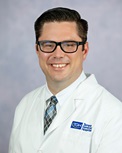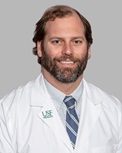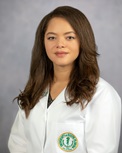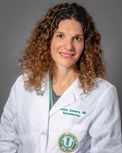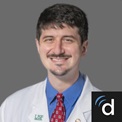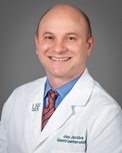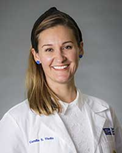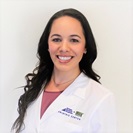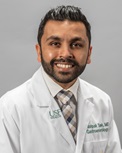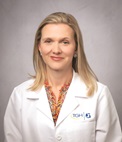Date | Saturday, February 11, 2023
Location
Hilton West Palm Beach
600 Okeechobee Boulevard
West Palm Beach, FL 33401
Audience
GI Specialists and Primary Care Physicians
Learning Objectives
As a result of participating in this activity, learners should be able to:
- Know when to order High Resolution Manometry
- Recognize Endoflip
- Describe EUS findings
- Discover when to preform hiatal hernia repair
- Identify which are best practice bariatric procedures
Relevant Financial Relationships
Prior to the activity, USF Health will disclose and mitigate all relevant financial relationships that relate to the content of the activity.
Accreditation
Continuing education activity credit provided by USF Health
Physicians
ACCME:
USF Health is accredited by the Accreditation Council for Continuing Medical Education (ACCME) to provide continuing medical education for physicians.
USF Health designates this live activity for a maximum of 5.0 AMA PRA Category 1 Credits™. Physicians should claim only the credit commensurate with the extent of their participation in the activity.
Physicians
Florida Board of Medicine:
USF Health is an approved provider of continuing education for physicians through
the Florida Board of Medicine. This activity has been reviewed and approved for
5.0 continuing education credits.
Nurses
Florida Board of Nursing:
USF Health (provider number 2970) is an approved provider of continuing education for nurses through Florida Board of Nursing. This activity has been approved for 5.0 contact hours.
Physician Assistants
Florida Physician Assistant Continuing Education Credit:
USF Health is an approved provider (50-2970) of Florida Physician Assistant continuing education credit through the Florida Board of Medicine. This activity has been approved for 5.0 continuing education credits.
Osteopathy
Florida Board of Osteopathic Medicine:
USF Health is an approved provider of continuing education for physicians through the Florida Board of Osteopathic Medicine. This activity has been reviewed and approved for up to 5.0 continuing education credits.
Disclaimer
The information provided at this CME/CE activity is for continuing education purposes only and is not meant to substitute for the independent medical/clinical judgment of a healthcare provider relative to diagnostic and treatment options for a specific patient’s medical condition.
Questions
If you have continuing education questions, please contact USF Health at cpdsupport@usf.edu
Presenters
|
Timothy Nywening, MD TGH Cancer Institute
|
Christopher DuCoin, MD USF Division of Gastrointestinal Surgery TGH Digestive Diseases Institute |
Carolina Martinez, MD USF Division of Colon and Rectal Surgery
|
|
Jennifer Seminerio, MD USF Inflammatory Bowel Disease Center |
Joseph Sujka, MD USF College of Medicine, Surgery |
John Jacobs, MD USF Division of Gastroenterology
|
|
Camille Thelin, MD USF Women's GI Health Program
|
Rebecca Klam, PsyD TGH | USF Health Bariatric Center
|
Pushpak Taunk, MD USF Division of Digestive Disease and Nutrition
|
|
Sonja K. Olsen, MD Transplant Hepatologist TGH | Gastro Group of the Palm Beaches |
|
Agenda
8:30 a.m. - 9:00 a.m.| Registration – Continental Breakfast
9:00 a.m. – 9:15 a.m. | Welcome & Introductions
9:15 a.m. – 9:45 a.m. | Surgical Treatment of Pancreatitis
Timothy Nywening, MD
Overview of surgical management of benign pancreatic disease including cystic lesions and chronic pancreatitis.
9:45 a.m. – 10:15 a.m. | GERD to Esophageal Cancer
Christopher DuCoin, MD
30% of the US population has Gastroesophageal Reflux Disease (GERD). While many are symptomatic, most will thankfully not progress to esophageal cancer. This session will review indications and possible surgical treatment options for GERD. We will then shift and discuss the current endoscopic and surgical treatments for esophageal cancer. The discussion will include the process of working up an esophageal cancer patient and explaining the importance of chemotherapy, radiation therapy, and immunotherapy - all in conjunction with operative interventions.
10:15 a.m. - 10:45 a.m. | Challenges in Operative Management of Inflammatory Bowel Disease
Carolina Martinez, MD
Inflammatory bowel diseases, including Crohn's Disease and Ulcerative Colitis, place a large burden on both patients and the medical system. This talk will highlight the epidemiology, common operative indications, challenges in the preoperative, interaoperative, and postoperative management of IBD and strategies to reduce the risk of post-operative complications after surgical management of inflammatory bowel disease.
10:45 a.m. – 11:00 a.m. | Break
11:00 a.m. – 11:30 a.m. | USF Inflammatory Bowel Disease Center: Updates and Future Goals
Jennifer Seminerio, MD
The objective is to discuss the disease state of Inflammatory Bowel Disease including Ulcerative Colitis and Crohn's Disease and their current placement in 2022 and beyond, in private practice, community hospitals and academic environments. There will be a synopsis of where USF plans to position itself regionally and nationally within this arena by discussing the USF IBD Center, which is currently under construction, along with the goals of the IBD Division as an entity here at USF. We will conclude by discussing the importance of advocacy in the state of Florida within this disease state, ways in which we can collaborate together and build a better future for these patients.
11:30 a.m. - 12:00 a.m. | Gastroparesis
Joseph Sujka, MD
In this talk, we will discuss the diagnosis of Gastroparesis - how this diagnosis is made, what the subtypes are and what treatments are available. We will also discuss ways to facilitate a team-based approach for treatment of these patients and what proposed benefits this may offer patients.
12 p.m. – 12:30 p.m. | Lunch
12:30 p.m. – 1:00 p.m. | Eosinophilic Esophagitis: Management and Updates
John Jacobs, MD
This session will discuss the epidemiology and the classic endoscopic findings in EoE, the importance of treating both the inflammatory and fibrostenotic components of EoE and compare the efficacy of the different medical treatment approaches in EoE.
1:00 p.m. – 1:30 p.m. | Updated Practical Approach to Diagnosing and Managing Lower GI Dysmotility
Camille Thelin, MD
Lower GI (colonic, anorectal and pelvic floor disorders) affect a significant amount of population and cause significant quality of life distress. These include common conditions such as chronic constipation, dyssynergic defection, fecal incontinence, and rarer conditions such as descending perineum syndrome, rectal mucosal intussusception/prolapse and solitary rectal ulcer syndrome, which we will explore. Then, we will focus on diagnosis, which remains mainly clinical, and which is supported by radiology and/or manometric tools. Finally, we will review current treatment and management options, including novel pharmacologic agents, biofeedback therapy, and neuromodulation therapies.
1:30 p.m. – 2:00 p.m. | Psychogasteroenterology: The Brain-Gut Connection
Rebecca Klam, PsyD
What is phsychogastreoenterology and what do we know about the brain-gut connection? We will explore that and understand how we can use a practical interdisciplinary approach to digestive disease intervention in this session.
2:00 p.m. - 2:30 p.m. | Innovations in Interventional EUS
Pushpak Taunk, MD
In this session, we will discuss the various disease processes that are treatable by EUS, the efficacy of interventional EUS procedures and compare the efficacy of current approaches versus interventional EUS procedures.
2:30 p.m. – 3:00 p.m. | Fatty Liver - the Need for Multidisciplinary Care and Review of Updated Guidelines
Sonja K. Olsen, MD
In this talk, we will review the recent guidelines for
diagnosis and management of NASH. The use of non invasive risk scores and
imaging tools to risk stratify patients will be discussed. The importance of a
multi-disciplinary team that includes primary care, endocrinologists, cardiologists,
nutritionists and hepatologists will be explored.
3:00 p.m. – 3:15 p.m. | Closing Remarks

